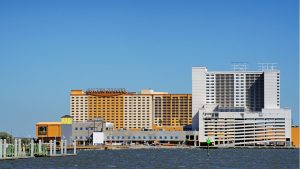Running a small business can be precarious. A few slow months of sales, damage to a building or excess inventory bill can quickly throw off your cash flow and force you to close.
This is why having cash reserves is essential to keeping your company afloat. Cash reserves act as an emergency fund, allowing you to quickly access money when you have expenses to pay and not enough income to cover it.
“It allows you to weather the storm when business does slow down,” says Dan Dollevoet, fractional CFO. “It also allows you to take advantage of more desirable opportunities for investment, whether you’re acquiring other companies or purchasing equipment to grow your business.”
Having cash reserves can give you peace of mind that your business can withstand tough times without needing to take on a loan or line of credit. Here’s how you can start building one.
What is a cash reserve?
In short, a business cash reserve is money set aside in an easily-accessible form that can be used to pay off urgent and immediate expenses.
Think of it as a rainy-day fund for your business. Cash reserves act as insurance against uncertain times, allowing you to not worry about whether your business can withstand the unexpected. While it can be tempting to immediately spend all your profits on hiring new staff, buying more stock or leasing more space, putting aside some funds for an emergency or important investment can pay off in the long run.
Why should businesses have cash reserves?
Cash reserves can serve a few purposes, from paying for emergency expenses to taking advantage of new opportunities. Having cash reserves can prevent your business from taking on high-interest debt, being late on your bills or possibly becoming insolvent.
Here are just a few reasons why cash reserves are important.
Emergency expenses
Emergencies don’t care about your profit margins. When a critical piece of equipment breaks, an unexpected bill comes in the mail or when a weather event floods your store and stock with debris, it can quickly become a domino effect on your business and your finances.
“The worst thing that could happen to a business is that they run low on money or run other money,” Dollevoet says. “Make sure that you’ve got an adequate cash reserve set aside to protect yourself.”
For example, you might be running a restaurant and your walk-in freezer breaks. You’re not in a position to wait a week for a business loan to get approved. You need to replace the freezer – and the food inside – quickly. Otherwise, you’ll have to close for a day or serve a limited menu which hinders your earning potential and prevents you from paying for another freezer.
Having cash reserves allow for you to pay for these expenses upfront so you can keep your business operational without racking up unnecessary debt through loans or credit cards.
Slow months
A dearth of sales can quickly kill even the most successful businesses. Low cash flow can put you in the negative when you account for fixed operating costs such as rent, taxes, equipment leases, wages for essential staff and debt repayments.
Even if you’ve accounted for historically slow times, unexpected downturns can still happen due to circumstances out of your control. If you’re a retail business that relies on foot traffic and the city decides to do construction on the sidewalks in front of your store for a few months, the loss of customers can quickly send your business under. Downturns in the global economy can also have adverse effects on your income as well, since many customers will have to be more selective of how they spend their money.
Having a few months’ worth of cash reserves saved up can help keep you afloat during slow times when you aren’t generating as much income as you need during slower times.
Business opportunities
If an opportunity pops up – such as an exceptionally good deal on essential equipment, hiring more staff during bullish times or refinancing a loan for a much lower interest rate – having cash on hand allows you to quickly take advantage.
Be sure to carefully consider which purchases you make with your cash reserves. The opportunities you cash in on should have a tangible benefit for your company with a proven track record – and leave you with some money for more dire circumstances.
How much cash reserves should a small business have?
Like an emergency fund, financial experts recommend having at least three to six months’ of essential operating expenses saved up in your cash reserves. Essential costs can vary from business to business, but it generally includes payroll for essential employees, rent and lease costs, taxes, debt repayments, utilities and minimum inventory.
Depending on the type of business you run, you may want to keep enough cash to pay for an emergency, and an additional reserve to cover for on off season. This way, if you’ve depleted your reserve to cover a slow month, you won’t be left in a tough spot if you have to pay for something else.
Where to keep a business cash reserve
Your cash reserves need to be in a secure, liquid and quickly-accessible form, which means you generally shouldn’t keep your reserves in assets like equipment, stocks or certificates of deposit.
Instead, it’s a good idea to keep your cash reserves in a business banking account. While you can keep it in your normal checking account, you can also set up a savings account with your bank in order to keep the funds separate from the capital you use every day for your business.
Some banks even offer high-yield business savings accounts, which offer higher APYs than checking and money market accounts, allowing you to earn interest on your cash reserves when not in use.
How to build a cash reserve
You don’t need to build a cash reserve all at once. Putting aside a set bit of cash from each month, season or quarter can be a highly effective partyour business budget.
Having a goal for your cash reserves ahead of time can help you adjust your budget and spending accordingly. It’s also a good idea to create cash flow or profit-and-loss statements on a regular basis so you can ensure you’re not taking more money out of your business than you need to.
Bottom line
Having quickly-available money in the form of cash reserves can be a lifeline for your business. Cash reserves can save you on lost profits, high interest rates and other issues when you need money to cover an emergency expense or a slow month. Building cash reserves take time, but it’s worth it to help keep your business afloat when times get tough.
Frequently asked questions
Read the full article here










